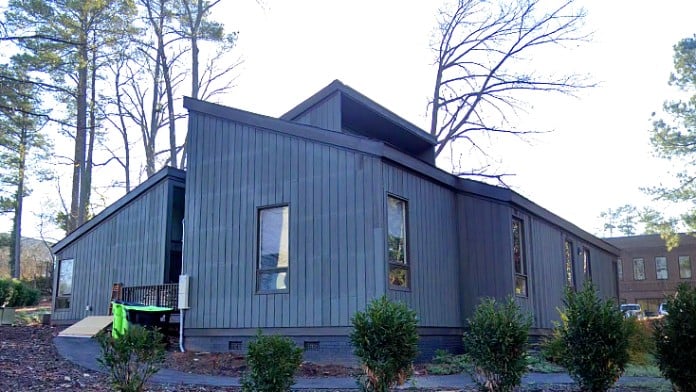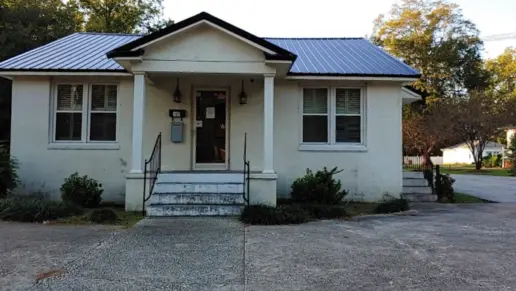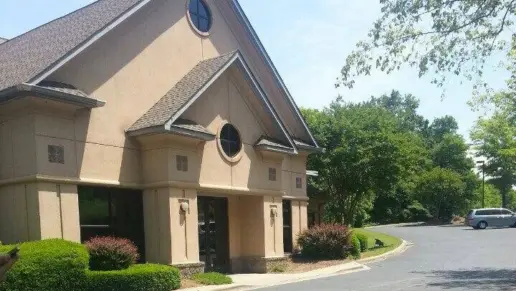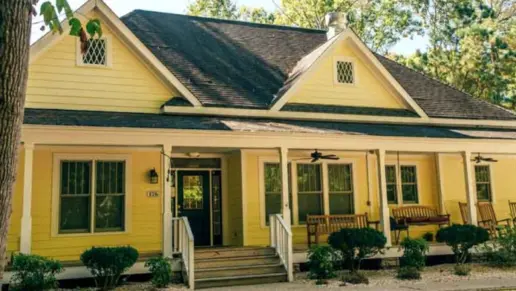About Green Hill Recovery
If you’re looking for an outpatient substance use and mental health treatment program in Raleigh, North Carolina, Green Hill Recovery is one of your options. They offer outpatient substance use treatment programs as well as a transitional living program. They offer in network services through BlueCross BlueShield and Aetna. They also work with other major insurance providers.
The center has an outpatient program, intensive outpatient program (IOP) and a recovery management program. The regular outpatient program is a less restrictive program focused on young adults who’ve been in recovery but need ongoing support. Most of the clients in the regular outpatient program are in school or working during the day. You’ll attend one to three individual sessions with your primary therapist each week. You’ll also go to several group sessions a week. You’ll be in the outpatient program from three to six months as you transition to a more self directed recovery.
The IOP is for young adults with life commitments that preclude attending an inpatient program. This is a more intensive program where you’ll have as much as 15 hours of programming a week. You’ll address the root causes of your substance use which often involves identifying a co-occurring disorder. Some examples of co-occurring disorders are anxiety, depression and bipolar disorder. The IOP offers morning and evening groups, and you’ll work on life skills like time management, resume writing and mindfulness. Most people stay in the IOP for about three months.
The recovery management program helps clients through semi weekly meetings with a management team. You’ll also attend therapeutic sessions once monthly. Recovery members can take advantage of the alumni events and participate in experiential activities offered throughout the year.
There’s an emphasis in the programs on making recovery fun to keep clients engaged. They encourage passion projects, sports, outdoor adventures, culture, art and entertainment. Since substance use often severs relationships and connections, you’ll have service opportunities that help reconnect you to life in community while helping others.
The transitional living program helps young men during their first year of recovery. You’ll learn about yourself, pursue academics or a career and engage in therapy. You’ll receive help with both substance use and dual diagnosis from licensed clinicians.
Latest Reviews
Rehab Score
Gallery

Location
Accepted Insurance
Other Forms of Payment
Private insurance refers to any kind of healthcare coverage that isn't from the state or federal government. This includes individual and family plans offered by an employer or purchased from the Insurance Marketplace. Every plan will have different requirements and out of pocket costs so be sure to get the full details before you start treatment.
Self-pay involves paying for treatment out of your own pocket. You can use savings or credit, get a personal loan, or receive help from family and friends to fund your treatment. If you don't have insurance or your insurance plan doesn't cover a specific program, self-pay can help ensure you still get the care you need.
Addiction Treatments
Levels of Care
Programs

Clinical Services
You usually develop a strong bond with your therapist during individual therapy sessions. This helps you explore the underlying causes of your substance use in a safe and nonjudgmental environment. Therapists help you develop effective coping strategies you can use in the community and improve your self awareness so you understand your addiction triggers.
Family therapy sessions address the emotional toll that addiction has had on the family unit and individual members. Therapists work with families to develop better coping strategies, which in turn create a stable environment for their loved one's recovery process.
Men and women enjoy a supportive environment within group therapy sessions for drug and alcohol addiction treatment. You can share your experiences and build connections with your peers while receiving encouragement from individuals who have faced similar challenges.
Trauma therapy helps you reclaim your life after experiencing or witnessing a traumatic event. Therapists help to process these memories, which promotes emotional healing and reduces anxiety in social situations. This improves your overall well being and increases your self confidence.
Accreditations

The Joint Commission, formerly known as JCAHO, is a nonprofit organization that accredits rehab organizations and programs. Founded in 1951, the Joint Commision's mission is to improve the quality of patient care and demonstrating the quality of patient care.
Joint Commission Accreditation: Yes
Contact Information
6124 St Giles St
Raleigh, NC 27612




